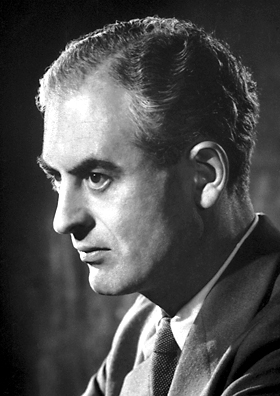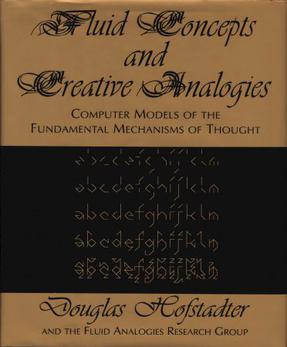
A polymath or polyhistor is an individual whose knowledge spans many different subjects, known to draw on complex bodies of knowledge to solve specific problems. Polymaths often prefer a specific context in which to explain their knowledge but others can be gifted at explaining abstractly and creatively.

Research is "creative and systematic work undertaken to increase the stock of knowledge". It involves the collection, organization, and analysis of evidence to increase understanding of a topic, characterized by a particular attentiveness to controlling sources of bias and error. These activities are characterized by accounting and controlling for biases. A research project may be an expansion of past work in the field. To test the validity of instruments, procedures, or experiments, research may replicate elements of prior projects or the project as a whole.
The scientific method is an empirical method for acquiring knowledge that has been referred to while doing science since at least the 17th century. The scientific method involves careful observation coupled with rigorous skepticism, because cognitive assumptions can distort the interpretation of the observation. Scientific inquiry includes creating a testable hypothesis through inductive reasoning, testing it through experiments and statistical analysis, and adjusting or discarding the hypothesis based on the results.

An invention is a unique or novel device, method, composition, idea or process. An invention may be an improvement upon a machine, product, or process for increasing efficiency or lowering cost. It may also be an entirely new concept. If an idea is unique enough either as a stand-alone invention or as a significant improvement over the work of others, it can be patented. A patent, if granted, gives the inventor a proprietary interest in the patent over a specific period of time, which can be licensed for financial gain.

Creativity is the ability to form novel and valuable ideas or works using one's imagination. Products of creativity may be intangible, or a physical object.

Sir Peter Brian Medawar was a British biologist and writer, whose works on graft rejection and the discovery of acquired immune tolerance have been fundamental to the medical practice of tissue and organ transplants. For his scientific works, he is regarded as the "father of transplantation". He is remembered for his wit both in person and in popular writings. Richard Dawkins referred to him as "the wittiest of all scientific writers"; Stephen Jay Gould as "the cleverest man I have ever known".

Lateral thinking is a manner of solving problems using an indirect and creative approach via reasoning that is not immediately obvious. Synonymous to thinking outside the box, it involves ideas that may not be obtainable using only traditional step-by-step logic. The cutting of the Gordian Knot is a classical example.
Creative problem-solving (CPS) is the mental process of searching for an original and previously unknown solution to a problem. To qualify, the solution must be novel and reached independently. The creative problem-solving process was originally developed by Alex Osborn and Sid Parnes. Creative problem solving (CPS) is a way of using creativity to develop new ideas and solutions to problems. The process is based on separating divergent and convergent thinking styles, so that one can focus their mind on creating at the first stage, and then evaluating at the second stage.
A Fermi problem, also known as an order-of-magnitude problem, is an estimation problem in physics or engineering education, designed to teach dimensional analysis or approximation of extreme scientific calculations. Fermi problems are usually back-of-the-envelope calculations. Fermi problems typically involve making justified guesses about quantities and their variance or lower and upper bounds. In some cases, order-of-magnitude estimates can also be derived using dimensional analysis. A Fermi estimate is an estimate of an extreme scientific calculation.
In scientific writing, IMRAD or IMRaD is a common organizational structure for the format of a document. IMRaD is the most prominent norm for the structure of a scientific journal article of the original research type.

In its most common sense, methodology is the study of research methods. However, the term can also refer to the methods themselves or to the philosophical discussion of associated background assumptions. A method is a structured procedure for bringing about a certain goal, like acquiring knowledge or verifying knowledge claims. This normally involves various steps, like choosing a sample, collecting data from this sample, and interpreting the data. The study of methods concerns a detailed description and analysis of these processes. It includes evaluative aspects by comparing different methods. This way, it is assessed what advantages and disadvantages they have and for what research goals they may be used. These descriptions and evaluations depend on philosophical background assumptions. Examples are how to conceptualize the studied phenomena and what constitutes evidence for or against them. When understood in the widest sense, methodology also includes the discussion of these more abstract issues.
The creative industries refers to a range of economic activities which are concerned with the generation or exploitation of knowledge and information. They may variously also be referred to as the cultural industries or the creative economy, and most recently they have been denominated as the Orange Economy in Latin America and the Caribbean.

Greatness is a concept of a state of exceptional superiority affecting a person or object in a particular place or area. Greatness can also be attributed to individuals who possess a natural ability to be better than all others. An example of an expression of the concept in a qualified sense would be "Hector is the definition of greatness" or "Napoleon was one of the greatest wartime leaders". In the unqualified sense it might be stated "George Washington achieved greatness within his own lifetime", thus implying that "greatness" is a definite and identifiable quality. Application of the terms "great" and "greatness" is dependent on the perspective and subjective judgements of those who apply them. Whereas in some cases the perceived greatness of a person, place or object might be agreed upon by many, this is not necessarily the case, and the perception of greatness may be both fiercely contested and highly idiosyncratic.
The philosophy of artificial intelligence is a branch of the philosophy of mind and the philosophy of computer science that explores artificial intelligence and its implications for knowledge and understanding of intelligence, ethics, consciousness, epistemology, and free will. Furthermore, the technology is concerned with the creation of artificial animals or artificial people so the discipline is of considerable interest to philosophers. These factors contributed to the emergence of the philosophy of artificial intelligence.

Fluid Concepts and Creative Analogies: Computer Models of the Fundamental Mechanisms of Thought is a 1995 book by Douglas Hofstadter and other members of the Fluid Analogies Research Group exploring the mechanisms of intelligence through computer modeling. It contends that the notions of analogy and fluidity are fundamental to explain how the human mind solves problems and to create computer programs that show intelligent behavior. It analyzes several computer programs that members of the group have created over the years to solve problems that require intelligence.
Pattern-oriented modeling (POM) is an approach to bottom-up complex systems analysis that was developed to model complex ecological and agent-based systems. A goal of POM is to make ecological modeling more rigorous and comprehensive.

The eureka effect refers to the common human experience of suddenly understanding a previously incomprehensible problem or concept. Some research describes the Aha! effect as a memory advantage, but conflicting results exist as to where exactly it occurs in the brain, and it is difficult to predict under what circumstances one can predict an Aha! moment.
Convergent thinking is a term coined by Joy Paul Guilford as the opposite of divergent thinking. It generally means the ability to give the "correct" answer to questions that do not require novel ideas, for instance on standardized multiple-choice tests for intelligence.

The Beginning of Infinity: Explanations that Transform the World is a popular science book by the physicist David Deutsch first published in 2011.










